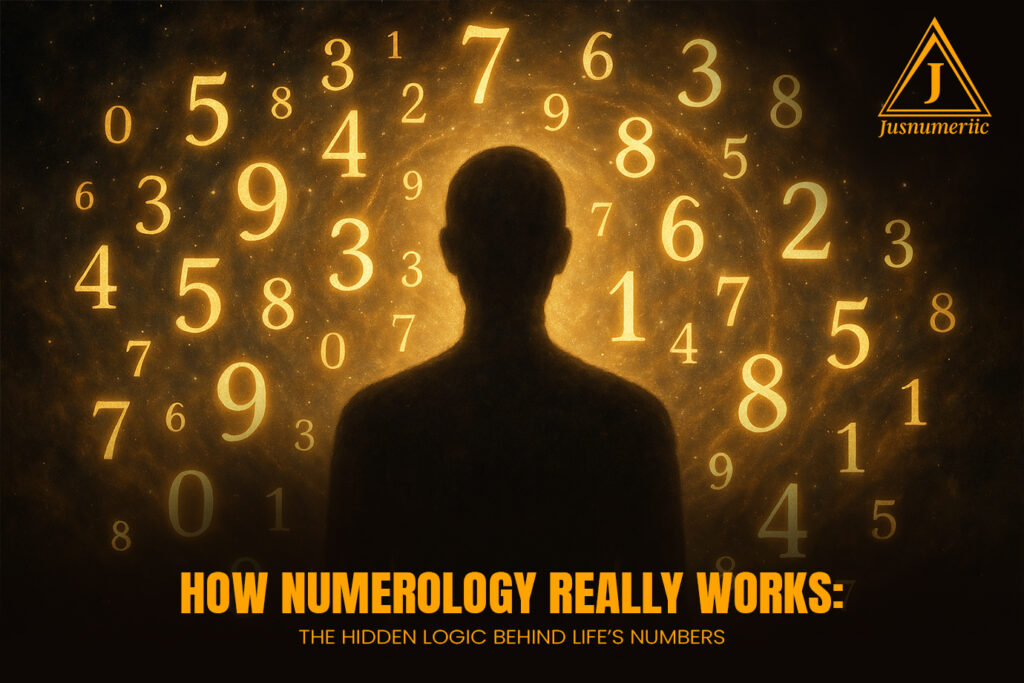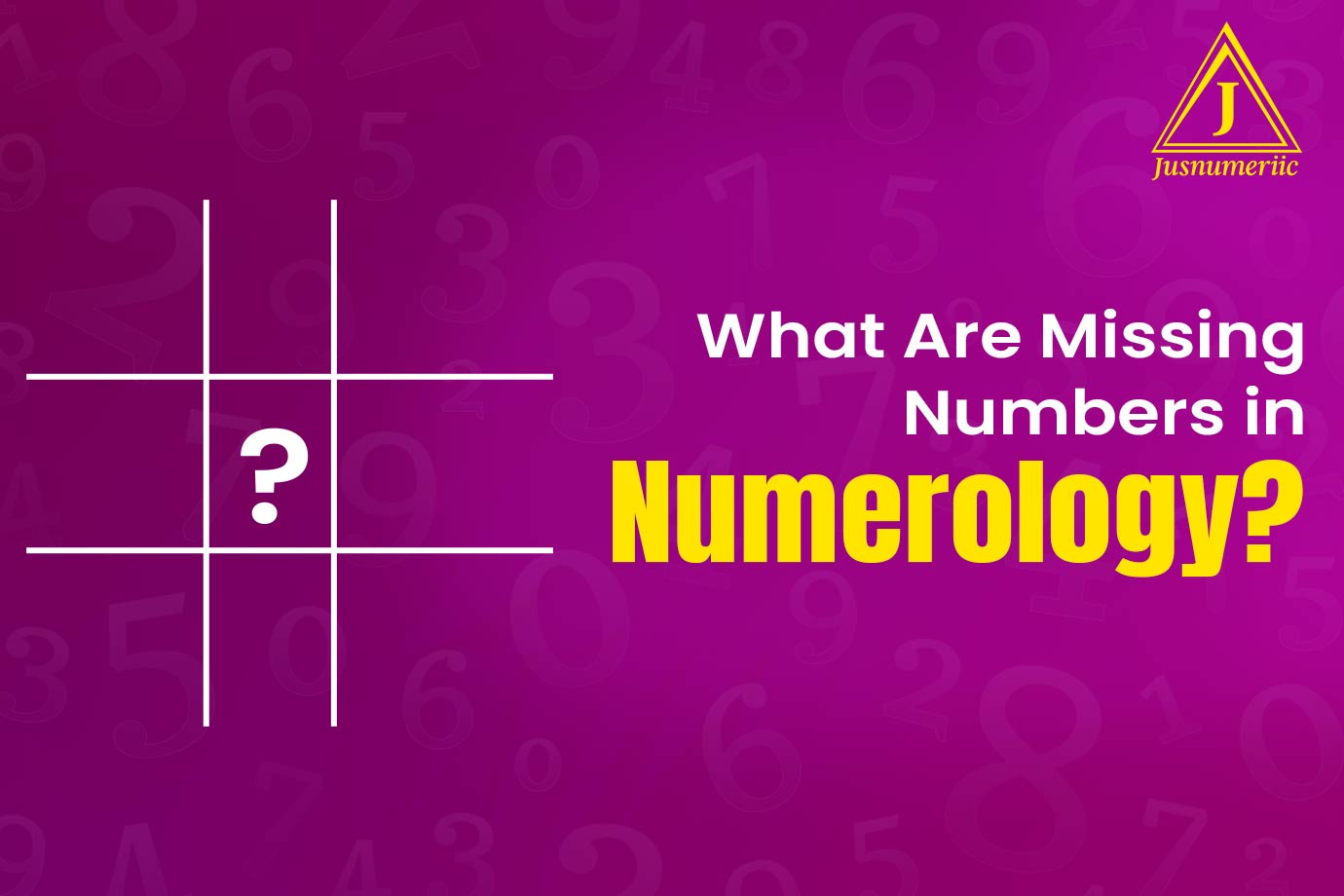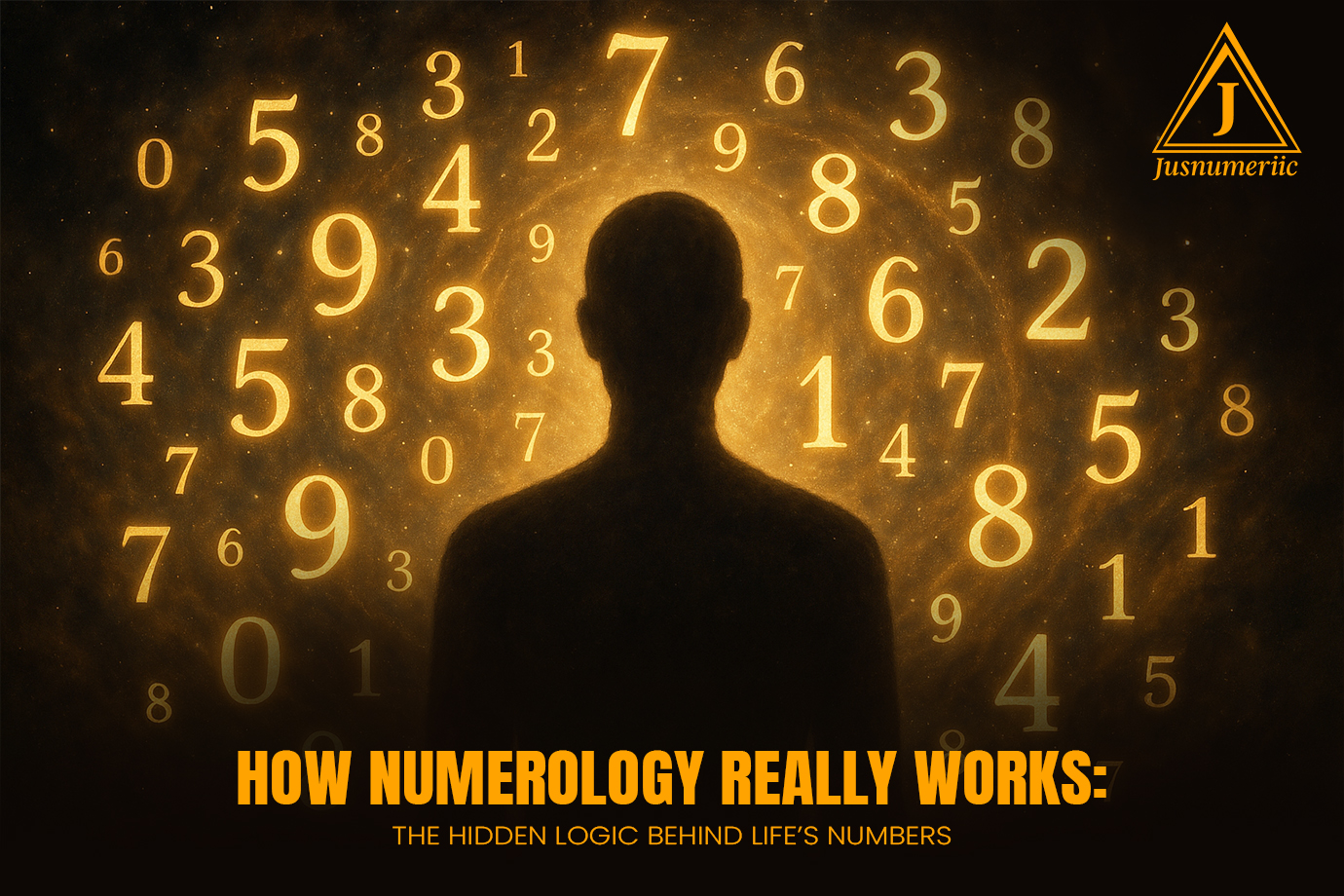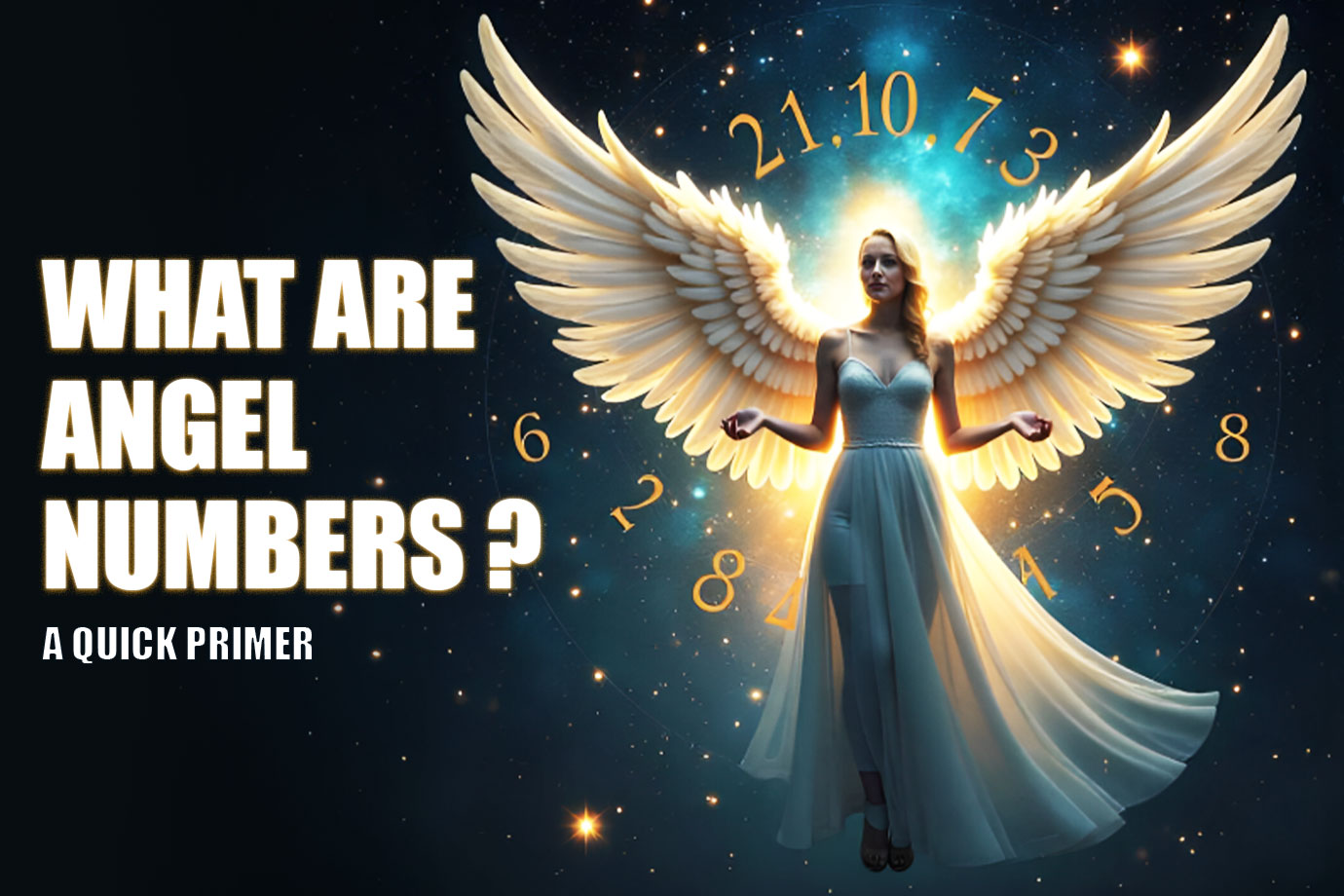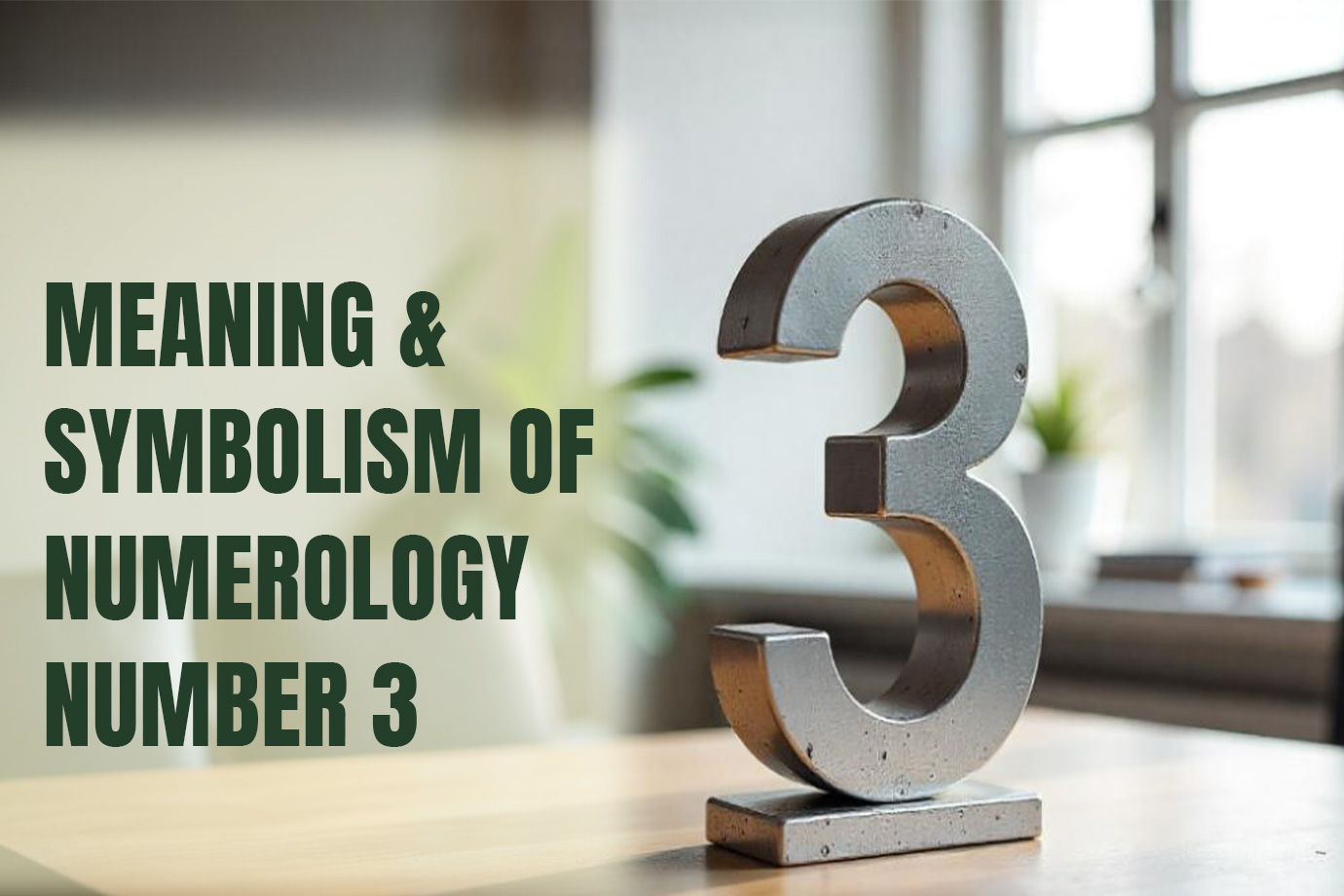In the magical world of Harry Potter, Hermione Granger’s favorite subject is arithmancy — a mysterious study that explores the secret power of numbers. Although J.K. Rowling doesn’t dive deeply into its details, the books hint that arithmancy involves using numerical charts to reveal hidden truths and even predict the future.
In the real world, this practice takes the form of numerology, a belief system rooted in the idea that numbers influence every part of life. According to numerologists, everything in the universe — from a person’s personality to their destiny — can be understood through numerical patterns and vibrations.
As the theory goes, every number carries a unique vibrational frequency. These vibrations shape how events unfold, how people behave, and even how relationships form. Numerological analysis attempts to uncover these patterns by studying numbers linked to an individual’s name, birth date, or repeating sequences that appear in daily life. Some call these angel numbers — signs believed to guide us or explain the hidden meaning behind occurrences.To many practitioners, there are no coincidences. Everything that happens does so according to a deeper numerical logic — a cosmic code waiting to be interpreted.
The Roots of Numerology: From Pythagoras to the Present
Most numerologists trace their system back to the ancient Greek philosopher Pythagoras, who lived around 570–495 BCE. Pythagoras is best known for his contributions to mathematics — particularly the Pythagorean theorem, which describes the relationship between the sides of a right triangle (a² + b² = c²).
But beyond geometry, Pythagoras and his followers, the Pythagoreans, were fascinated by the hidden connections between numbers, music, and the natural world. They discovered mathematical ratios in musical harmonies, explored the geometry of shapes, and studied irrational numbers like the square root of two — often called Pythagoras’ constant.
More importantly, Pythagoras believed that “all is number.” This statement had two interpretations. One was mathematical — that everything in the universe can be measured and described through numbers and proportions. The other was mystical — that everything is made of numbers, and therefore, numbers themselves hold divine or creative power.This idea shaped centuries of thought, blending mathematics with philosophy, spirituality, and even early science. For Pythagoras and his students, the universe wasn’t random — it was a numerical symphony, where every vibration resonated with deeper meaning.
Core Concepts of Pythagorean Numerology
The Pythagoreans didn’t just study numbers as quantities; they categorized them by shape, pattern, and symbolic quality.
For instance:
- Numbers like 1, 4, and 9 were “square numbers,” because they could form perfect squares of dots or stones.
- 1, 3, 6, and 10 were “triangular numbers,” forming equilateral triangles.
- 2, 6, and 12 were “oblong numbers,” forming rectangles.
But their fascination didn’t stop at geometry. The Pythagoreans believed that numbers had personality traits and spiritual meanings as well.
- Odd numbers were considered masculine; even numbers, feminine.
- One (1) represented creation — the source of all other numbers.
- Two (2) symbolized duality and femininity.
- Three (3) embodied masculinity and creativity.
- Five (5), being the sum of two and three, stood for harmony and marriage.
- Ten (10) was sacred, seen as the sum of the first four digits (1 + 2 + 3 + 4 = 10), representing completeness.
These symbolic interpretations laid the foundation for modern numerology, where numbers are not just mathematical tools but vibrational archetypes representing human qualities, life paths, and universal laws.
The Revival of Number Mysticism
After Pythagoras’ time, interest in the mystical side of mathematics declined for centuries. It wasn’t until the late 19th century that numerology resurfaced in Western thought, thanks to L. Dow Balliett, an American writer who explored the link between numbers, vibrations, colors, and sound.
Balliett proposed that every number has a specific vibration — and that everything in existence (people, objects, foods, even colors) vibrates as well. To live a balanced life, she suggested, one must surround themselves with elements that harmonize with their personal vibration.
This idea resonates with many New Age philosophies today, which often refer to subatomic vibrations or quantum energy to explain unseen connections in the universe. However, while the concept of vibrational harmony is fascinating, it has little empirical backing — no scientific study has yet quantified these “number vibrations” or proven their influence on human behavior.
Still, modern numerology builds on Balliett’s theories, applying them to human life in personalized ways. Each number from 1 to 9 is believed to have its own inherent energy, influencing the personality traits and life direction of anyone associated with it.
Certain double numbers are considered especially powerful and are known as master numbers:
- 11 (a blend of 1 and 2 energies),
- 22 (combining 2 and 4), and
- 33 (mixing 3 and 6).
Some systems even extend this idea to 44 (4 and 8), though the first three are the most commonly recognized.
How Numerology Interprets Life and Destiny
In practice, numerology aims to reveal patterns that can explain life events, personal tendencies, and even future possibilities. The idea is that if numbers carry certain vibrations, then a person who resonates with a particular number will attract experiences and choices that align with that vibration.
For instance, someone with a Life Path Number 9 might be driven by compassion and idealism — characteristics associated with the number’s frequency. This person might feel drawn to humanitarian work or creative pursuits, and numerology would suggest aligning major life choices with that vibration for balance and success. Numerology also analyzes compatibility, suggests career directions, highlights strengths, and reveals potential challenges — functioning much like astrology, but through numbers instead of stars.
Calculating Your Life Path Number
One of the most common and significant calculations in numerology is the Life Path Number — a single digit (or sometimes a master number) derived from your birth date.
But numerology also works with names, following an ancient tradition known as gematria — converting letters into numbers to find deeper meanings in words. This method has roots in Hebrew, Greek, and Latin cultures, where scholars used numerical values to interpret sacred texts like the Bible or the Torah.
1. Converting Names into Numbers
Most numerologists use a simple chart that assigns a number to each letter of the alphabet:
A = 1, B = 2, C = 3 … and so on, up to I = 9, then restarting with J = 1.
Using this method, numerologists convert the letters of a person’s full birth name into numbers, then add them together. If the sum is greater than nine, you add the digits again until a single-digit number (or master number) remains.
For example, the name “John Smith” would translate as:
- John = 20
- Smith = 24
- Total = 44 → 4 + 4 = 8
So, John Smith’s name number is 8. Numerologists associate this number with ambition, leadership, and material success.
2. Calculating by Birth Date
They (or Numerologists) use a similar process with birth dates. Suppose someone was born on July 31, 1981:
7 (for July) + 31 + 1981 = 2019
Then 2 + 0 + 1 + 9 = 12
And 1 + 2 = 3
This gives a Life Path Number of 3, symbolizing creativity, optimism, and communication.Many numerologists believe that a person’s name and birth numbers work together — forming a unique energetic blueprint that influences their behavior, strengths, and challenges throughout life.
Interpreting the Numbers
After calculating the key numbers, numerologists analyze them much like astrologers interpret planetary charts. Each number carries symbolic meanings and lessons.
A typical numerology reading might offer insights into:
- Lucky numbers or days
- Career paths that align with one’s vibration
- Strengths and weaknesses to focus on
- Romantic compatibility and communication patterns
These interpretations often read like personal horoscopes, blending intuition, psychology, and symbolic language. While the accuracy of such readings is subjective, many people find them useful for self-reflection and decision-making.
The Mysterious Number 666
One of the most infamous numbers in history is 666, referred to in the Book of Revelation as the Number of the Beast. For centuries, scholars and mystics have employed numerological techniques to connect this number to individuals’ names—sometimes as a warning, and other times out of mere curiosity. Interestingly, with sufficient creative adjustment, one can manipulate almost any name to total 666.
This flexibility shows how interpretive and symbolic numerology can be — less about strict formulas, more about meaning and perception.
Critiques and Skepticism Around Numerology
Despite its popularity, numerology faces significant criticism, particularly from scientists and skeptics who see it as pseudoscience — a belief system lacking empirical evidence.
Here are the main arguments against it:
- Pattern Recognition Bias: Nature naturally wires humans to spot patterns—a survival mechanism that helps us learn and predict. This same skill, however, can make us interpret coincidences as meaningful patterns, even when they’re random.
- Limited Number Set: With only ten digits (0–9), repetition is inevitable. Seeing recurring numbers like 11:11 or 777 doesn’t necessarily indicate divine guidance; statistically, probability guarantees it will happen.
- Cultural Variation: The very foundation of numerology — the base-10 counting system — is a human invention. Some ancient cultures used base-12, base-20, or base-60 systems. If our numerical framework is arbitrary, critics argue, how can universal truths depend on it?
Ultimately, while numerology can offer personal meaning or emotional comfort, there’s no scientific evidence proving that number vibrations influence the material world.Still, for many, numerology isn’t about proof — it’s about perspective. It offers a symbolic language to reflect on one’s life path, much like mythology or astrology. The insights may be intuitive rather than measurable, but they can inspire self-awareness and mindfulness.
Final Thoughts
Whether seen as a science of vibrations or a poetic way to interpret life, numerology continues to intrigue and inspire. It blends mathematics, mysticism, and philosophy into a single belief — that numbers are more than tools for counting; they are keys to understanding the universe.
From Pythagoras’ geometric discoveries to modern interpretations involving angel numbers and personal vibrations, the core idea remains timeless: life follows patterns, and numerology can express those patterns through numbers. For skeptics, numerology may simply be symbolic. But for believers, it offers a way to see meaning where others see randomness — a reminder that the universe, in all its mystery, may still be speaking to us in the silent language of numbers.
Frequently Asked Questions(FAQs)
1. How do I find my numerology number?
Start with your birth date. Add all the numbers together until you reach a single digit or master number.
Example: February 14, 1990 → 2 + 14 + 1990 = 2006 → 2 + 0 + 0 + 6 = 8.
So, your Life Path Number is 8.
You can also apply the same method to your full name, translating each letter to a number and summing them.
2. Which numbers are considered lucky or good?
Numerology doesn’t label any number as inherently “best,” but certain numbers carry strong vibrations. Numerologists often view the master numbers—11, 22, and 33—as the most spiritually significant, symbolizing higher purpose, vision, and wisdom.
3. What is the most powerful number in numerology?
Many people consider 22 to be the most powerful among master numbers. Known as the “Master Builder,” it represents the ability to turn dreams into tangible achievements — combining intuition with practicality.
4. What does the number 77 mean?
People consider the number 77 to be an angel number, symbolizing rewards and spiritual growth. People often interpret seeing it frequently as a sign that one’s efforts and intentions are beginning to manifest positively.


